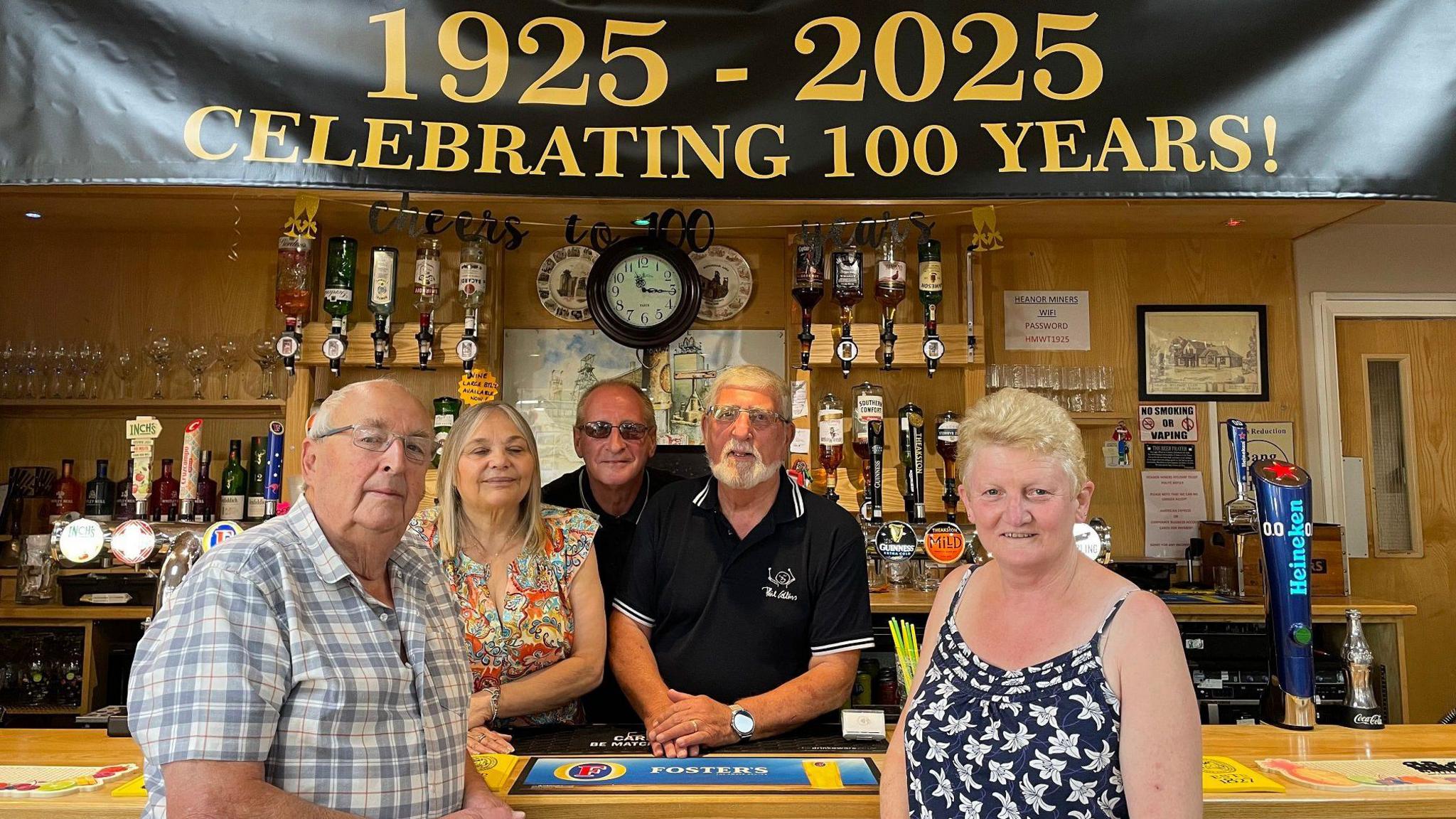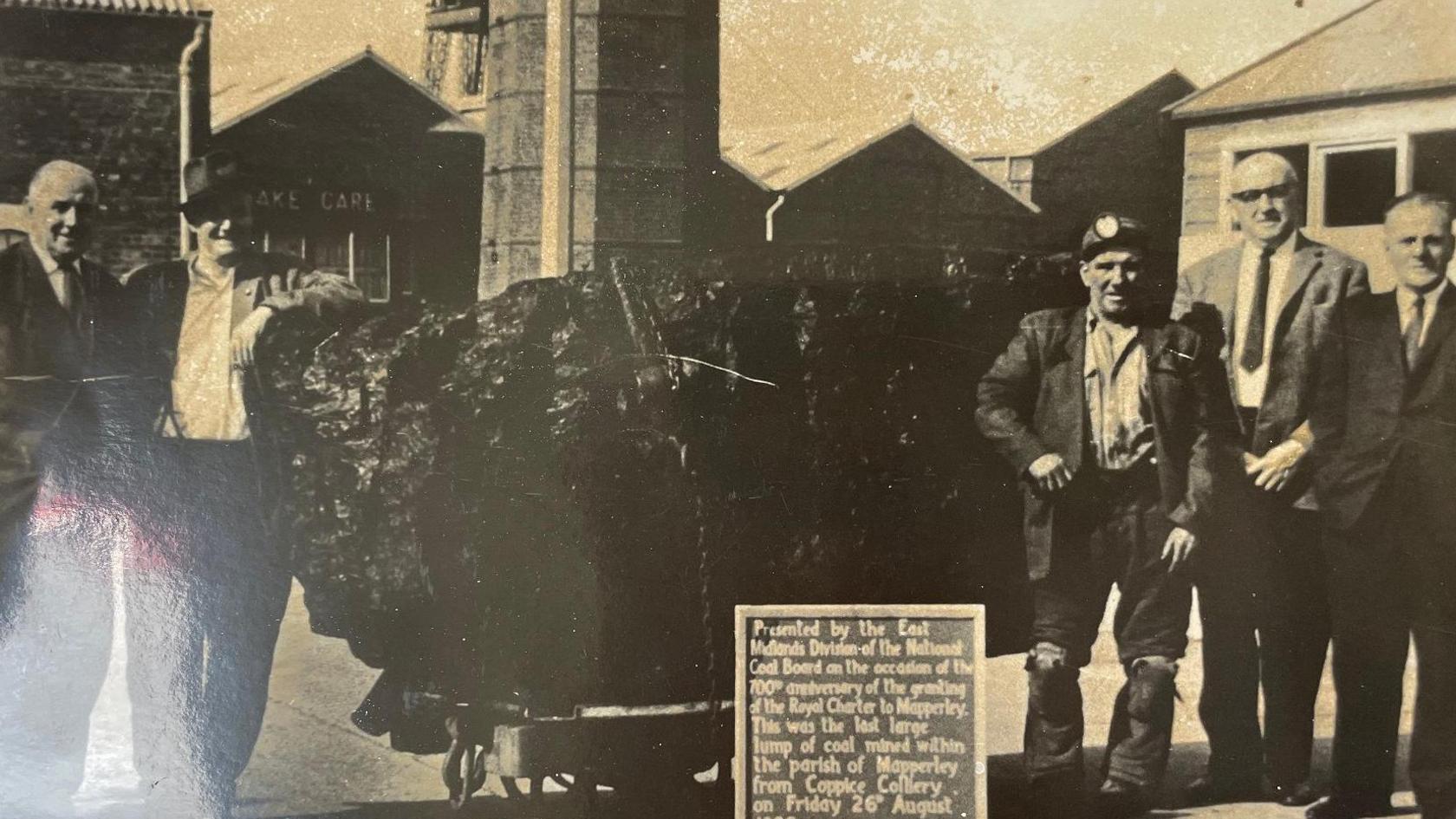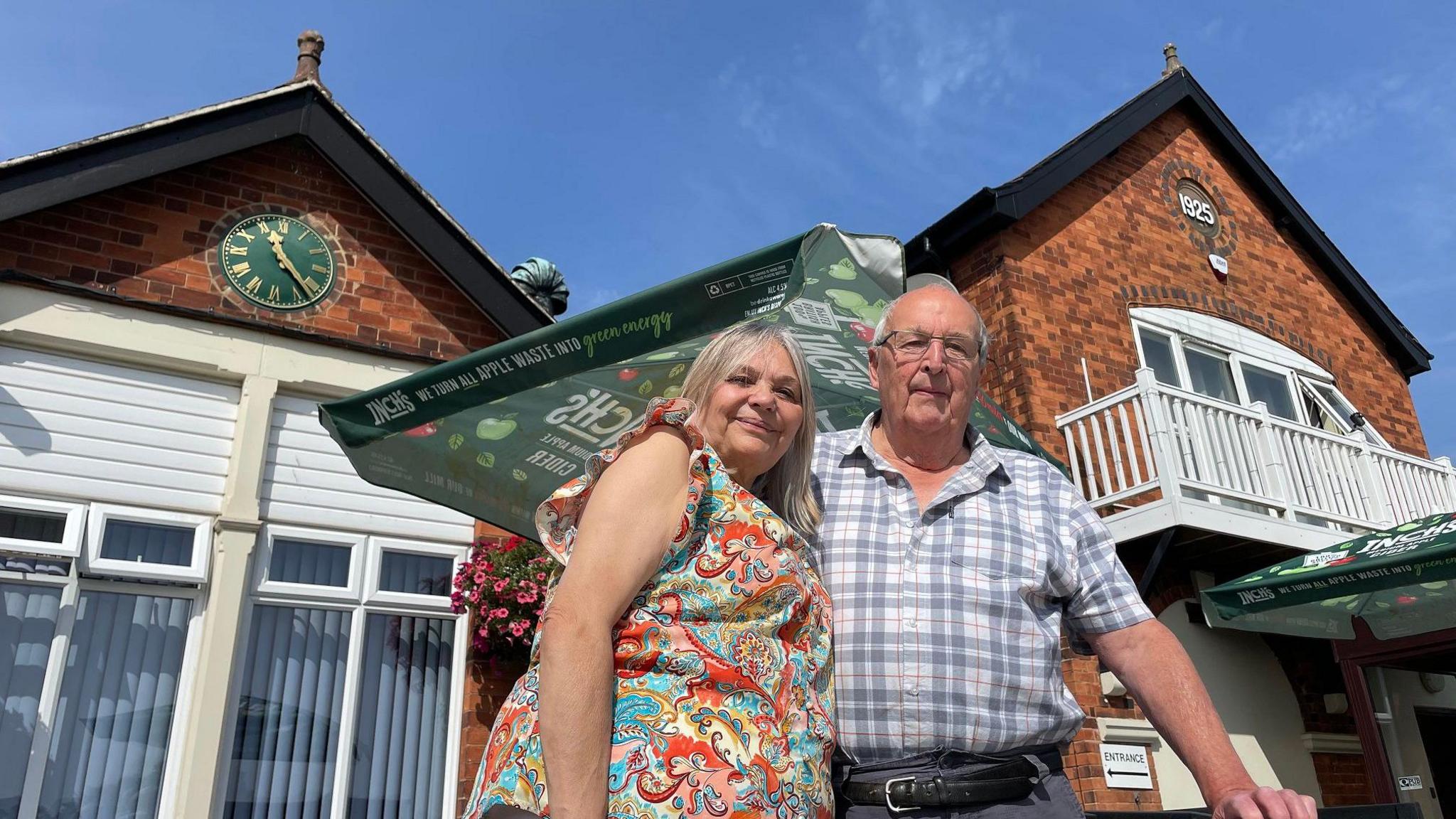Life at the miners' welfare that outlived the pits

A gala weekend has been arranged by the charity to mark an impressive milestone
- Published
Coal mining was once the beating heart of communities across the Midlands and the north.
And while very few mines still remain in operation across the UK, their legacy still lives on in some places.
In Derbyshire, Heanor Miners' Welfare, which will mark its 100th anniversary this weekend, is one connection to the county's mining past which survives today.
Susan Hamilton, the trust's general manager, said: "It was all for the mining community and their families, but we're still a big part of the community now."
When the charity was set up 100 years ago, it was closest to the Coppice coal seams at Shipley, but it also attracted miners from several other pits nearby.
Receipts from its early days, which are still held by the trust, show it paid out for a self-styled "bashful" comedian, a hypnotist, and a "man-servant".
The passage of time has led to changes at the site off Ilkeston Road, which lost some sports facilities to allow the nearby Heanor Fire Station to be built but also expanded in other places.
Yet some aspects remain familiar - with the club's first ever stock order from 1925 including barrels of mild, bottles of whisky, brandy, sherry and crisps.
And despite the lack of miners living locally in 2025, the club still has more than 600 members on its books participating in activities including crown green bowling, clairvoyant mediums, football teams and dementia tea dances.

The collieries were depleted and shut down over the course of the club's 100 years
Ms Hamilton, 61, said: "There were a lot of pits around here at the time it was set up, Coppice being one, so they were set up for the miners and miners' families.
"When they first opened up, ladies could only go into one part of the club - but they did have some committee members who were ladies, which I was quite surprised at."
She added: "It's more of a community thing now, although we're called a miners' welfare - I don't suppose many miners come in here now.
"But we're still a big part of the community."

The charity's celebrations will include 1920s-themed entertainment
Celebrations this weekend will include a gala day, afternoon teas, bouncy castles, a barbecue, 1920s-themed entertainment and more to mark the milestone.
John Marshall, 76, charity chairman, said: "We've always been here. It was built in 1924 through 1925 and opened in the August.
"In the few years after the miners' strike, I'm not going to say we struggled, but we were getting less membership, people moving away, getting different jobs.
"But we are one of the few clubs where everything that we make here is put back into the club.
"We have over 600 members and there are more activities here than anywhere else combined."
Steward Garry Yorke, 58, said: "We love the club, love the members, and we encourage everything to go off here."
Meanwhile Julie Mart, 62, social trustee, said the welfare was like a big family.
She added: "I can walk in here, and I know everybody. If this place shut, I'd probably stay at home."
Get in touch
Tell us which stories we should cover in Derby
Follow BBC Derby on Facebook, external, on X, external, or on Instagram, external. Send your story ideas to eastmidsnews@bbc.co.uk, external or via WhatsApp, external on 0808 100 2210.